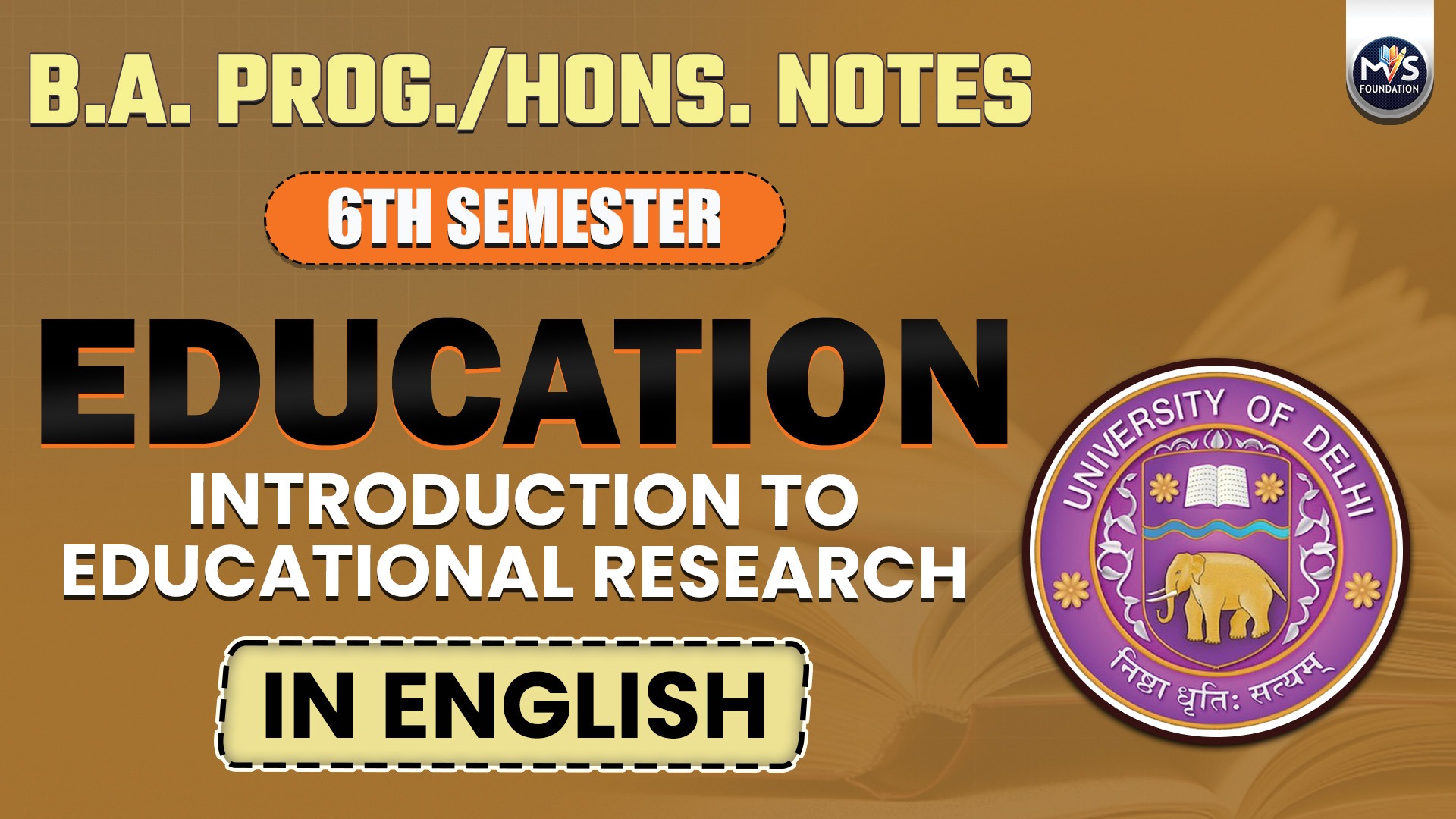
Get in Touch
We will get back to you within 24 hours.
Welcome to MVS Blog

Ques 1. Explain educational research. What are the different types and principles of educational Research?
Answer
Introduction
The term " educational research combines the meanings of "education" and "research." The word "education has roots in the Latin words: Educare, meaning "to bring up," "to train," or "to rear." "research" originates from the Old French word rechercher, which means "to seek again" or "to search thoroughly Therefore, "educational research" can be understood as the systematic inquiry into issues within the field of education. It involves applying research methods and techniques to explore, describe, explain, predict, and potentially influence educational phenomena.
Definition
According to Good, "Educational research is investigation and study in the field of education."
According to Whitney (1950), "Through the application of scientific and philosophical methods, educational research seeks to resolve issues related to education."
EDUCATIONA RESEARCH
When research is done to solve problems in the field of education or to acquire or create new knowledge, it is called educational research. Therefore, educational research is a process in which problems in the field of education are solved through systematic actions or scientific method.
For example, if a researcher wants to do content analysis of textbooks developed as per NEP-2020 to know their quality, then this research will be Educational Research.
Principles of Educational Research: -
1. Objectivity: Keep research free from personal bias or opinions.
2. Validity: Make sure you're measuring what you actually intend to.
3. Reliability: Results should be consistent if the study is repeated.
4. Ethics: Respect participants' rights-consent, privacy, and well-being matter.
5. Transparency: Clearly explain your methods so others can follow or repeat them.
6. Critical Thinking: Question assumptions and consider different views.
7. Relevance: Focus on meaningful issues that can improve education.
8. Generalizability: Think about whether your findings apply to other settings.
9. Holistic View: Consider all factors-social, cultural, personal-that affect education.
10. Accountability: Be responsible for your research's quality and integrity.
Types of Educational Research: -
Educational research can be broadly classified into three types:
1. Descriptive Research:
Descriptive research is used to describe the current state of a situation, group, or process without changing any conditions. It focuses on "what is" rather than "why" or "how."
Example: A researcher
surveys 500 high school students to find out how many hours they spend on homework each week.
2. Experimental Research:
Experimental research is used to test cause-and-effect relationships by actively changing one variable and observing its impact on another
Example: A teacher uses a new math teaching method with one group of students and the regular method with another. After a test, their results are compared to see which method was more effective.
3.Correlational Research:
Correlational research examines the relationship between two or more variables to see if they move together in a predictable pattern. However, it does not prove that one causes the other.
Example: A study finds that students who sleep more tend to have higher academic scores.
Educational research can be categorized into three main types based on functionality:
1. Fundamental Research:
This research aims to build knowledge and understand basic principles or theories in education. It's not about solving a specific problem right away. Example: A researcher studies how children's brains develop language skills over time. It helps deepen our understanding, which can guide future studies.
2. Applied Research:
This type of research takes existing theories and uses them to find solutions to real-world educational problems. Example: A school tests whether using digital tools in the classroom improves student performance. It's focused on solving specific issues in teaching and learning.
3. Action Research:
Usually done by teachers or school staff, this research focuses on improving their own work. It's hands-on, practical, and done in the classroom. Example: A teacher tries out new classroom rules to reduce distractions and tracks the results. It's all about making things better right where the problem happens.
In conclusion:
Educational research helps improve learning in different ways. Among all types, action research is often the most practical, as it directly helps teachers solve real classroom problems and improve student outcomes.
0 Response